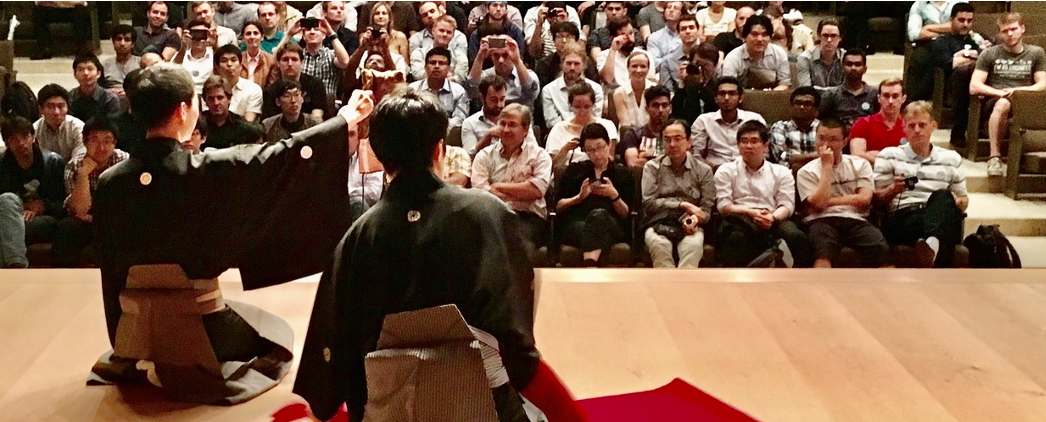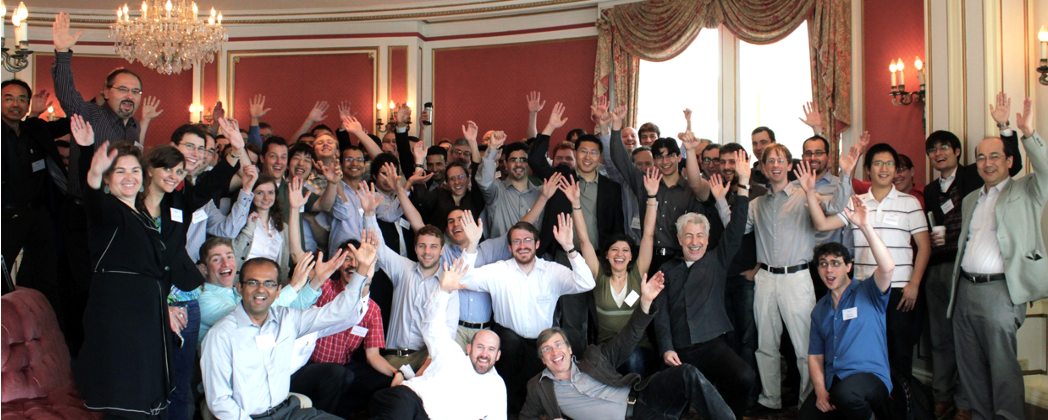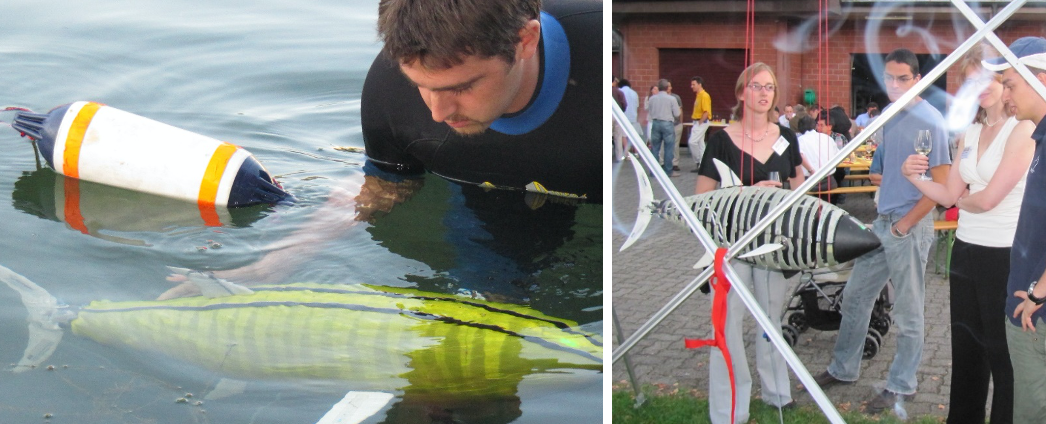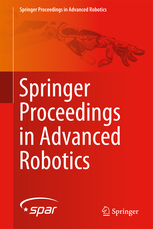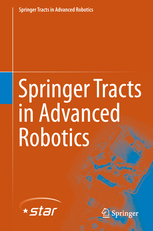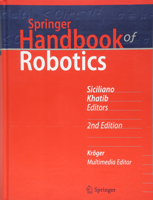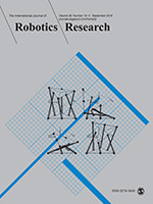Springer Proceedings in Advanced Robotics (SPAR)
Springer Tracts in Advanced Robotics (STAR)
International Journal of Robotics Research
Springer Proceedings in Advanced Robotics (SPAR)
The Springer Proceedings in Advanced Robotics (SPAR) publishes new developments and advances in the fields of robotics research, rapidly and informally but with a high quality.
The intent is to cover all the technical contents, applications, and multidisciplinary aspects of robotics, embedded in the fields of Mechanical Engineering, Computer Science, Electrical Engineering, Mechatronics, Control, and Life Sciences, as well as the methodologies behind them.
The publications within the "Springer Proceedings in Advanced Robotics" are primarily proceedings and post-proceedings of important conferences, symposia and congresses. They cover significant recent developments in the field, both of a foundational and applicable character. Also considered for publication are edited monographs, contributed volumes and lecture notes of exceptionally high quality and interest.
An important characteristic feature of the series is the short publication time and world-wide distribution. This permits a rapid and broad dissemination of research results.
The proceedings of the International Symposium of Robotic Research (ISRR), the International Symposium of Experimental Robotics (ISER), and the Workshop on the Algorithmic Foundations of Robotics (WAFR) are published here.
Springer Tracts in Advanced Robotics (STAR)
The Springer Tracts in Advanced Robotics (STAR) publish new developments and advances in the fields of robotics research, rapidly and informally but with a high quality. The intent is to cover all the technical contents, applications, and multidisciplinary aspects of robotics, embedded in the fields of Mechanical Engineering, Computer Science, Electrical Engineering, Mechatronics, Control, and Life Sciences, as well as the methodologies behind them. Within the scope of the series are monographs, lecture notes, selected contributions from specialized conferences and workshops, as well as selected PhD theses.
Special offer: For all clients with a print standing order we offer free access to the electronic volumes of the Series published in the current year.
Indexed by DBLP, Compendex, EI-Compendex, SCOPUS, Zentralblatt Math, Ulrich's, MathSciNet, Current Mathematical Publications, Mathematical Reviews, MetaPress and Springerlink.
Springer Handbook of Robotics
The second edition of this handbook provides a state-of-the-art cover view on the various aspects in the rapidly developing field of robotics. Reaching for the human frontier, robotics is vigorously engaged in the growing challenges of new emerging domains. Interacting, exploring, and working with humans, the new generation of robots will increasingly touch people and their lives. The credible prospect of practical robots among humans is the result of the scientific endeavour of a half a century of robotic developments that established robotics as a modern scientific discipline. The ongoing vibrant expansion and strong growth of the field during the last decade has fueled this second edition of the Springer Handbook of Robotics.
The first edition of the handbook soon became a landmark in robotics publishing and won the American Association of Publishers PROSE Award for Excellence in Physical Sciences & Mathematics as well as the organization’s Award for Engineering & Technology.
The second edition of the handbook, edited by two internationally renowned scientists with the support of an outstanding team of seven part editors and more than 200 authors, continues to be an authoritative reference for robotics researchers, newcomers to the field, and scholars from related disciplines. The contents have been restructured to achieve four main objectives: the enlargement of foundational topics for robotics, the enlightenment of design of various types of robotic systems, the extension of the treatment on robots moving in the environment, and the enrichment of advanced robotics applications. Further to an extensive update, fifteen new chapters have been introduced on emerging topics, and a new generation of authors have joined the handbook’s team.
A novel addition to the second edition is a comprehensive collection of multimedia references to more than 700 videos, which bring valuable insight into the contents. The videos can be viewed directly augmented into the text with a smartphone or tablet using a unique and specially designed app.
Springer Handbook of Robotics Multimedia Extension Portal: http://handbookofrobotics.org/
International Journal of Robotics Research
A leading peer-reviewed journal in its field for more than two decades, The International Journal of Robotics Research (IJRR) was the first scholarly publication on robotics research.
IJRR offers incisive and thought-provoking original research papers and articles, perceptive reviews, and lively editorials on ground-breaking trends issues, technical developments, and theories in robotics by the outstanding scholars and practitioners in the field. The Journal covers more than just narrow technical advances-it embraces a wide variety of topics.
Consistently ranked in the top 3 in its category of the Thomson Scientific JCR, IJRR publishes scholarly articles that provides engineers, researchers, and scientists with the very best of current research on robotics research - from applied mathematics to artificial intelligence to computer science, to electrical and mechanical engineering.
IJRR also publishes high quality, peer reviewed datasets and multimedia extensions alongside articles. This journal is a member of the Committee on Publication Ethics (COPE). All issues of IJRR are available to browse online.
Select papers of the International Symposium of Robotic Research (ISRR), the International Symposium of Experimental Robotics (ISER), and the Workshop on the Algorithmic Foundations of Robotics (WAFR) are published here.

